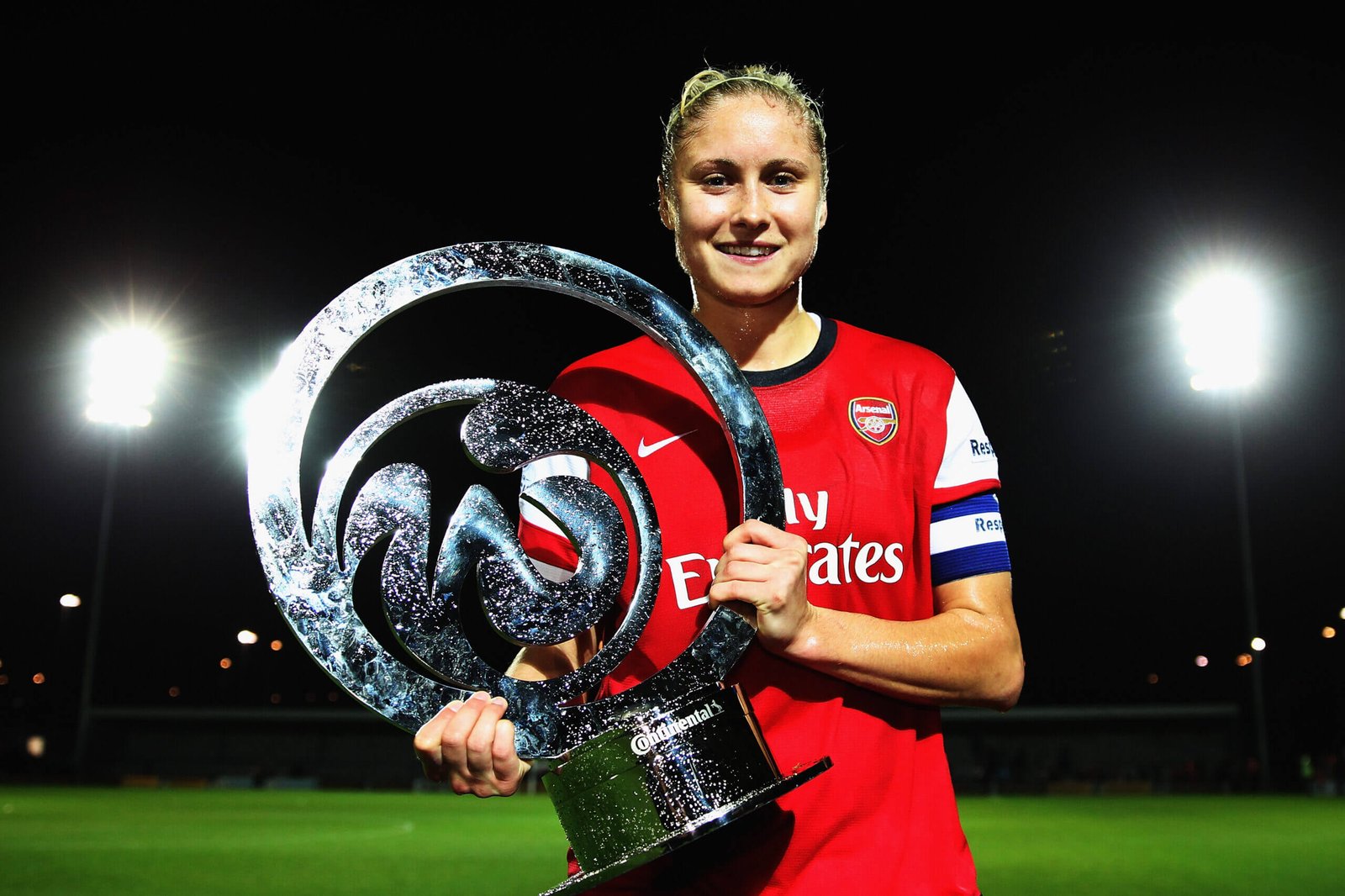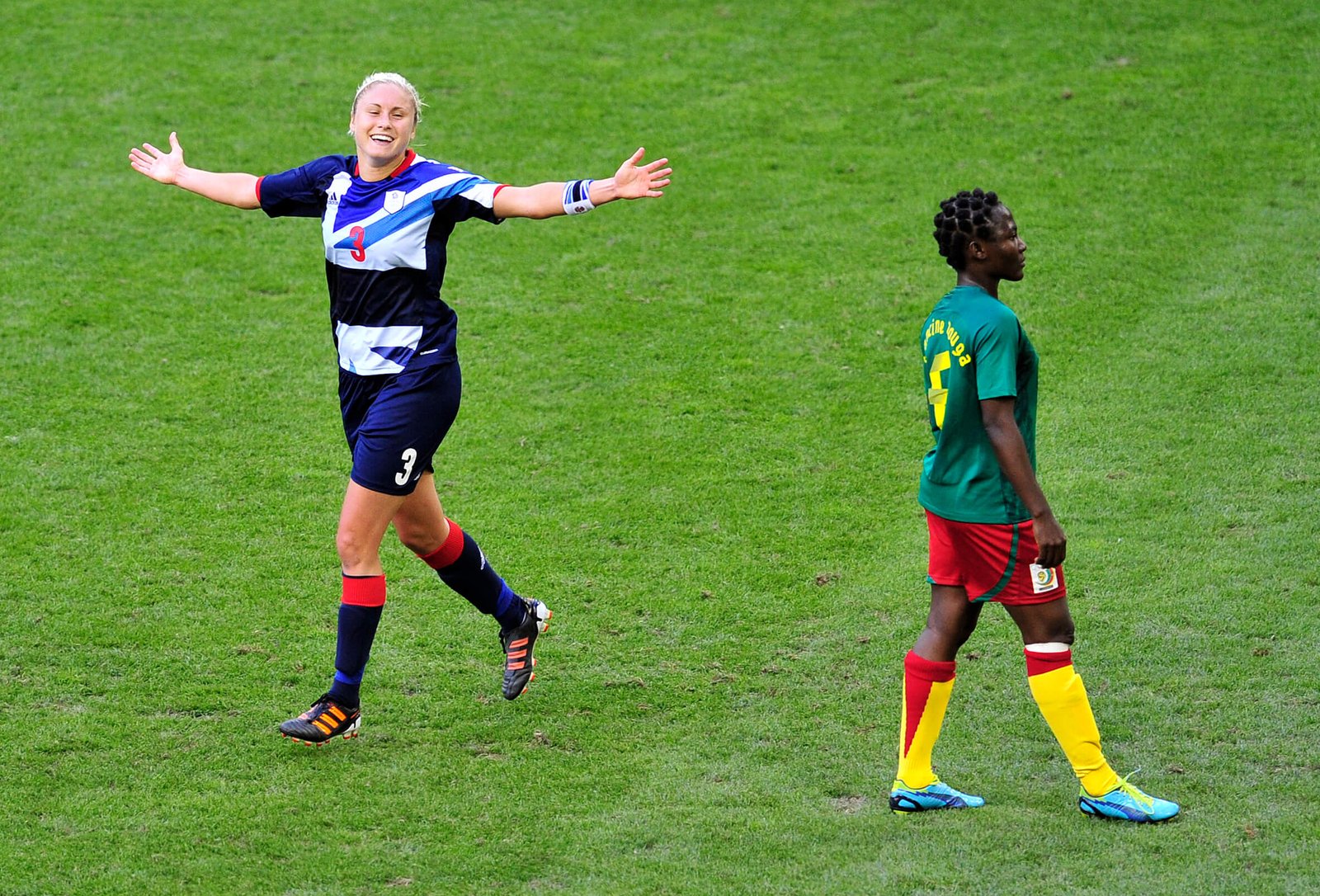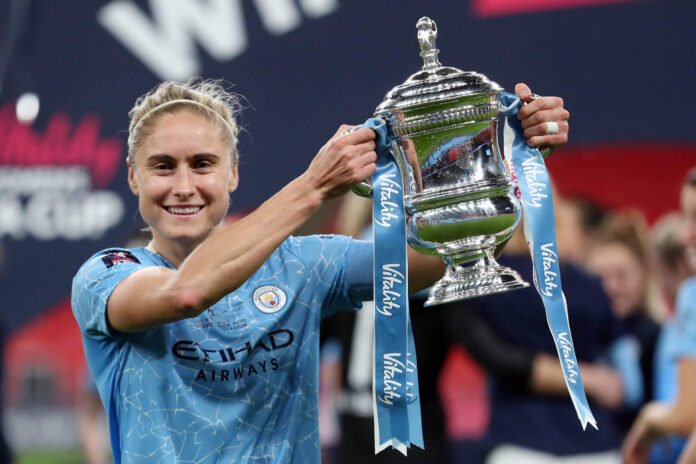As Steph Houghton walked towards the penalty spot on July 2, 2019, she could not have imagined that she was about to take her last meaningful action for England at an international tournament.
It was the semi-finals of the World Cup in Lyon. Houghton was about to attempt to draw England level with the United States — and it would have given England a fighting chance of reaching their first World Cup final. Aged 31 at the time, the striker-turned-midfielder-turned-left-back-turned-centre-back was captaining her country in a third consecutive tournament semi-final.
Nearly five years on from that fateful moment when U.S. goalkeeper Alyssa Naeher saved her penalty, Houghton has announced that she will be retiring at the end of the Women’s Super League season. After more than 400 appearances playing for Sunderland, Leeds, Arsenal and Manchester City, as well as 121 caps for England, the City captain said: “I hope I leave the game in a better place than when I started, and that I have contributed in some small way to giving the girls of tomorrow a better future in football.”
Houghton sees her penalty saved by Naeher in 2019 (Alex Grimm/Getty Images)
In the intervening years, Houghton’s star has faded in the game.
She has moved from being an ever-present for England and Manchester City to someone who has watched on from the sidelines. The 2019 World Cup was not the last time she would captain her nation — she led Team GB at the Tokyo Olympics in 2020 — but the arrival of Sarina Wiegman as England manager in 2021 proffered a change of direction, with Wiegman appointing Leah Williamson as captain in 2022.
Houghton, at the time, was beset by injuries and her struggle to get fit to make the squad for Euro 2022 was a painful watch. In the end, Wiegman declined to select her.
England’s win at the tournament catapulted those who did make the squad to unheard levels of recognition. And through no fault of any of those players, those who missed out on the tournament got left behind — Houghton was one of them.
A hugely influential force at all of the clubs she played for, it was at Manchester City where Houghton got the opportunity to stamp her mark.
She joined City in 2014 as one of the original professional players at the club, alongside Jill Scott, whose own trajectory highlights the role the Euros could have on a player’s recognition in public. As part of that initial group led by City manager Nick Cushing, Houghton was crucial in ensuring that the club became established at the top of the WSL, helping them win the 2014 Continental Cup and, two years later, their first and only WSL title.

Houghton won two WSL trophies at Arsenal (Bryn Lennon/Getty Images)
Houghton’s reliability in defence and knack for an important goal meant that she became a mainstay for England, and was one of the most recognisable faces from Team GB’s run to the quarter-finals at London 2012. Playing at left-back, Houghton scored three of Team GB’s five goals at the tournament, including the winners in both of their 1-0 wins against New Zealand and Brazil.
Under Houghton’s captaincy, England reached the semi-finals of the 2015 World Cup, 2017 Euros and the 2019 World Cup. The importance of those tournaments on England’s eventual Euros triumph in 2022 should not be overlooked, with the experiences of Millie Bright, Ellen White and Keira Walsh crucial in helping to get England across the line at Wembley.
Hughton’s impact at City saw her develop and lead a positive club environment — no mean feat, having to build it from scratch — that influenced the development of Georgia Stanway, Jess Park and Esme Morgan. City’s swift ascent to the top of the WSL has surprised many observers over the years given their immediate entry into the league, but their cross-city rivals United can attest that competing consistently at the top for the past decade is not a simple business.

Houghton after scoring for Great Britain against Cameroon at London 2012 (Glyn Kirk/AFP/GettyImages)
Would the recognition have been different for Houghton if she had not missed her penalty on that fateful night in France, and England had somehow made it to their first World Cup final four years before they eventually did?
It is impossible to know. Perhaps it might have also been different if she had bowed out after missing out on that England squad in 2022. The fact that she didn’t says plenty about her character.
In some ways, Houghton is lucky that she is of a generation in which her highlights and low points have been captured via video and records. There are plenty of others who came before her who do not even have that as an option.
It means that Houghton’s achievements can be properly understood and appreciated in the years to come — a testament to the culture to which she contributed.
(Top photo: Catherine Ivill/Getty Images)
Read the full article here


